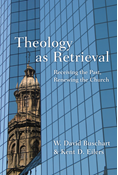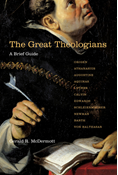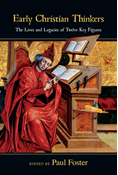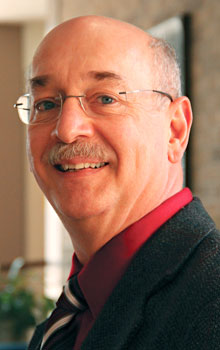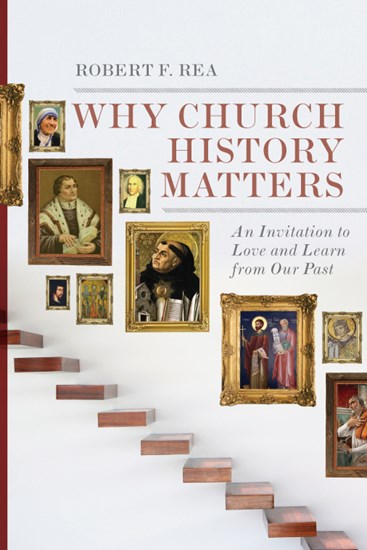
|
Why Church History Matters
ebook
|
- Length: 233 pages
- Published: June 05, 2014
- Imprint: IVP Academic
- Item Code: 6482
- ISBN: 9780830864829
-
Other Retailers:
Amazon*
Christianbook.com*
*affiliate partner
-
paperback
Does it matter how Christians in other times and places thought?
If the Bible alone is God?s revelation, why spend time studying church history?
Aren?t history and tradition more of a problem than a solution?
For many Christians who believe the Bible is the ultimate authority for faith and life, questions about the role and value of the church's traditions can be difficult to tackle. But let's be honest: even those of us who admit that church history is important are often too intimidated or busy to delve into it deeply. And for students, it is sometimes difficult to see how church history matters in practical ways for future vocations inside and outside the contemporary church.
In this wide-ranging book, veteran teacher Bob Rea tackles these barriers to understanding and embracing the significance of the faith and practice of our spiritual forefathers. In three parts he covers how Christians understand church tradition, why it is beneficial to broaden our horizons of community and how tradition helps us understand ministry. Rea not only skillfully explains why church history matters—he shows why it should matter to us.
"Robert Rea has done something unique in this volume. He has dispelled the false notion that knowing the Bible makes understanding church history irrelevant. He has made church history a vital cornerstone for those who desire to serve the church well today and into the future. He has done this by taking the time to tie it deliberately and directly to the local church and practical ministry. Written by a veteran of the classroom and the church, this volume serves both venues well."
"Robert Rea provides us with a passionate yet reasoned defense of church history in this thought-provoking study. Having been formed both intellectually and spiritually in a Protestant tradition that prioritized the Bible as the source of God's revelation to humankind, Rea discovered the wisdom of the church fathers and their successors in the course of his academic training. He presents in this book the fruit of years spent studying and teaching the ideas of Christian thinkers who flourished in the centuries after Jesus Christ and his apostles, with close attention to their historical circumstances. This is essential reading for all who teach or study church history or historical theology—two fields which Rea would prefer not to separate—since it offers not only an overview of the methods and concerns of theologians in the past but also important insights into how their work is received by Christian commentators in the present day."
"Church history is the most important subject in the theological curriculum. I say this not only because I am a church historian but simply because it is true. Without a good grasp of the history of God's people through the ages one cannot understand the Bible, doctrine, ethics, ecumenism, spiritual formation or any other topic related to the life of faith. Robert Rea has given us here a readable and compelling statement of why that is so. This is a great primer for the study of Christian history in all of its multicolored meanings and forms."
"Robert Rea, who describes himself as a 'Bible-focused' Christian believer, wants others who focus on the Bible to take church history seriously. His careful, thought-provoking study shows why there is no biblical reason to fear 'tradition' properly understood, but every reason to heed believers from the past as guides to Christian life today. Most importantly, the book is successful in explaining why full commitment to Scripture demands close and respectful attention to the past."
"Rea explores how the church has understood its tradition throughout history and how it's understood today. He explains why the study of Christian history is essential to forming personal and corporate identity, experiencing broad Christian community, providing contemporary accountability and bringing theological balance by expanding horizons and filling theological gaps. He identifies specific ways church history can help in the study of the Bible and in other ministry areas. . . . Recommend Why Church History Matters especially to pastors and seminary and Bible college students."
"A thoughtful introduction to the use of the history of Christianity within our Christian lives and Christian communities. Rea deserves our thanks for a thoughtful and useful book."
"I agree wholeheartedly with Rea: we need church history, and we can use it while affirming our commitment to Scripture. . . . I welcome that call, and I echo many of his explanations for how church history helps and how neglect of it impoverishes our churches. This book is a useful starting point for the pastor and layperson who want to know and discuss why church history matters."
"This is a helpful volume that belongs in religious library collections. It is a perceptive treatment that convincingly argues about the significance of Christian history."
"Rea provides an accessible and compelling case for why and how the study of church history can actually serve the faith of Bible-focused Christians. Therefore, it would serve as an excellent textbook in a Christian college or seminary class, when many students are only beginning to taste the riches our historic faith has to offer."
"Rea is to be commended for making a cogent argument for the importance of historical theology to an audience that typically neglects it."
"Robert F. Rea has prepared for us a small appetizer which invites us to the table to enjoy a feast with many other prominent Christians—sages, theologians and ministers—and to taste selected dishes of Ancient, Medieval, Reformation, and all the way to modern theological desserts, prepared by our elderly brothers and mentors such as Karl Barth, Dietrich Bonhoeffer, and their works."
CONTENTS
Foreword
Abbreviations
Introduction
Part One: How We Understand the Tradition
1. What Is the Tradition?
2. How Have We Understood Tradition Historically?
3. How Do We Understand the Tradition Today?
Part Two: Expanding Circles of Inquiry
4. Who Am I? History and Christian Identity
5. A Great Cloud of Witnesses: Christian Community across the Centuries
6. Accountability Partners: Sharing Accountability with Historic Christians
7. Mentors and Friends: Historic Christians Broaden Our Horizons and Fill Gaps in Our Understanding
Part Three: Tradition Serving the Church
8. Rightly Dividing the Word of Truth: Christian Exegesis across the Centuries
9. Tradition and Ministry
Celebrate the Body of Christ
Recommended Resources for Ministry
Notes
Name and Subject Index
Scripture Index


